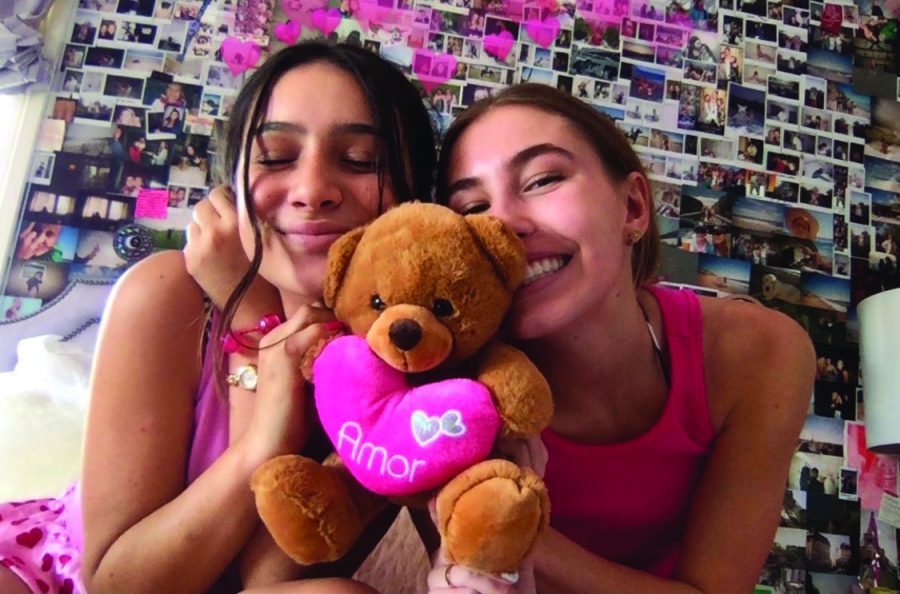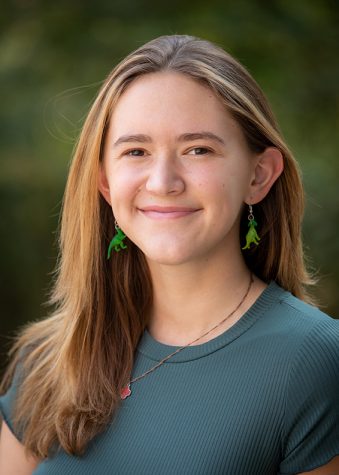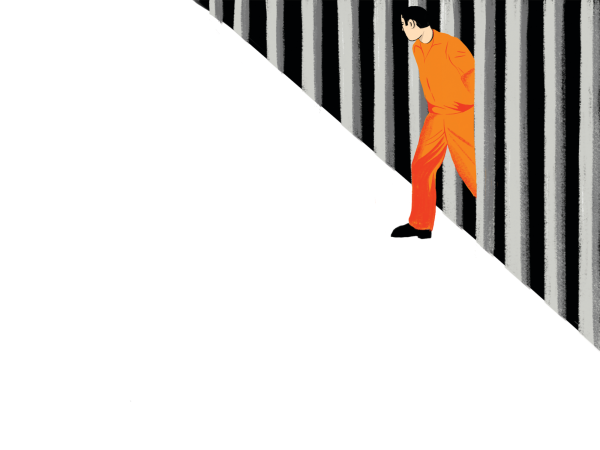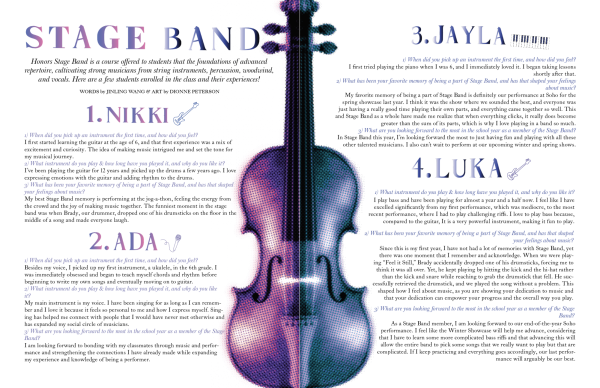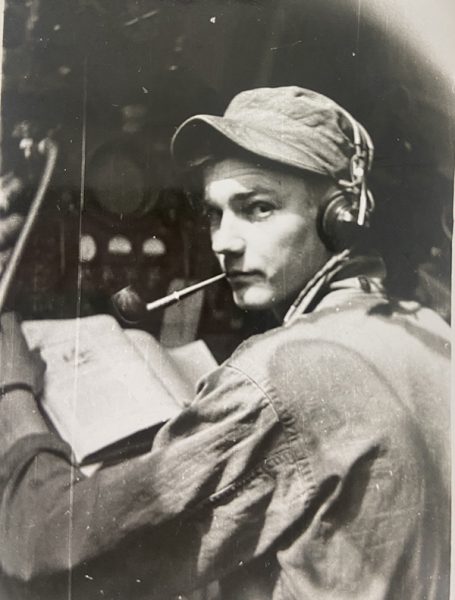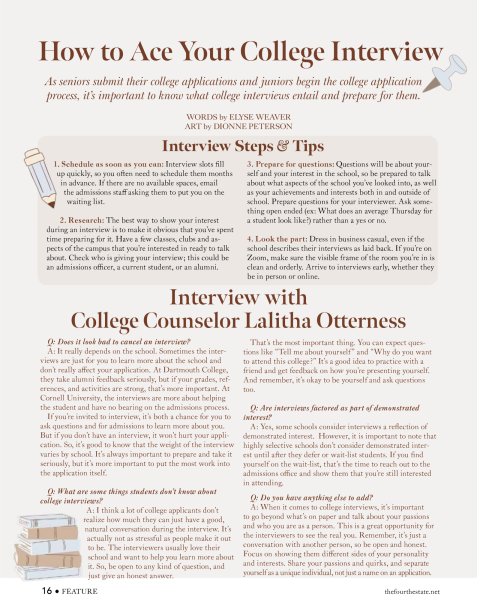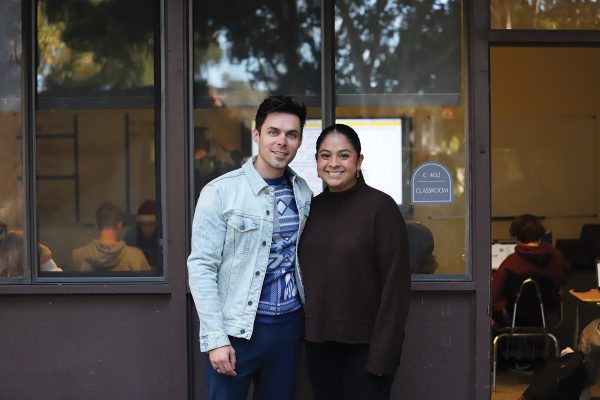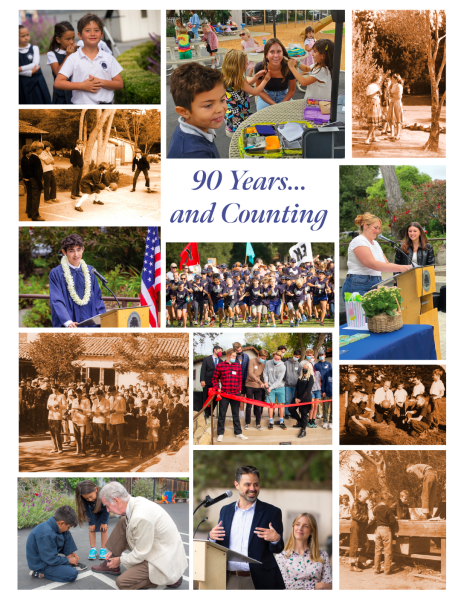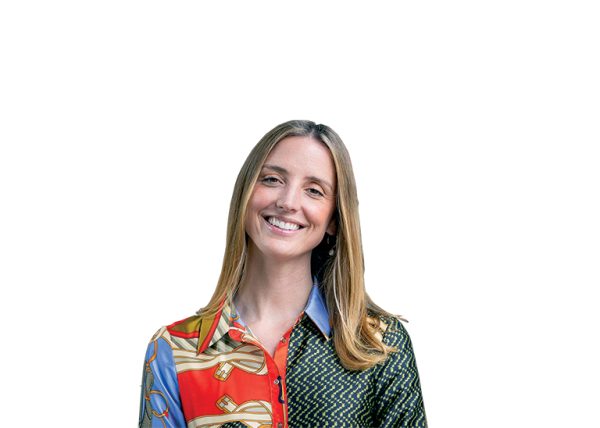Young Entrepreneurs
When two teens were inspired to use their required community service hours for more than just volunteer work, a business was born.
January 25, 2021
It has become a trend in the past few months, teens who put their clothes on resale websites such as DEPOP to make some quick money.
However, it is much less common for teenagers to succeed in this daunting task and be doing it for entirely selfless reasons.
But this is what seniors Sophia Webster and Annie Gabler are doing. They started their business, Communal Closet, in January 2020, and since then, have sold over 300 items of clothing from thrift stores and their closets through the resale app DEPOP.
Of course, their success may reflect well on them, but it also is directly benefiting their community. Sophia and Annie decided to partner early on with a local non-profit organization CALM (which supports those who have experienced child abuse), pledging to donate 100% of their proceeds to this important cause.
Tell me about the beginning of Communal Closet?
ANNIE: “It was called Communal Closet because we were gathering all of these girls and all of our clothes. We had formed a team of girls from every public high school [in Santa Barbara].
It was supposed to be more pop-up shops, we were supposed to go in stores, we were going to have a mother’s day event where we would go into people’s closets and clean them out, but all of that had to switch because of COVID.”
How did COVID impact those plans?
SOPHIA: “Basically, when we initially met with CALM, we were going to do events where we partnered with local restaurants, for example, Helena bakery and Dune.
The CEO of CALM was going to come out and speak; we would have music, it would be more of a community event where people would not just be buying clothes but would also be donating and spreading awareness for the cause.
It would also help us spread to new age demographics because [CALM] is not getting a lot of their communications across to high school kids, allowing that to spread more. When COVID hit, all those efforts got shut down.“
ANNIE: “We started listing stuff on DEPOP because we had bags of clothes in my room, and I was just like, ‘dude I need to get rid of some of these and make some money’.”
How did your business get its popularity?
SOPHIA: “This is probably two months before DEPOP’s big boom, when everyone was on DEPOP, so it allowed us to start to gain a following. There weren’t as many accounts, so when we posted clothes, we were like, ‘Woah, wait, why did we just sell five things in one day?’ and that started to just round-up.
That was in March when everyone was at home, there was nothing to do, and everyone was online shopping.
We took advantage of [that], and we would just spend days after we got out of school at noon building a web- site, posting photos, shipping orders. We shipped like fifty packages from the post office the first time, and we show up with these massive bags.”
ANNIE: “We had bags of clothes that we initially started with, and when we ran out of those, we decided to get stuff more curated to what people were buying.
We got people to donate their clothes, we went out to thrift stores, out to vintage stores, my mom donated a bunch of stuff.”
What was your process of running this business through COVID?
SOPHIA: “Annie and I go thrifting all the time, and we were like, we can actually do this, we can get a shirt for two dollars and sell it for twenty-eight, making a massive profit for CALM.
That started to build, and then one day, we got an email from DEPOP saying that we had been meeting the requirements to be in their top seller programs, so that’s when we got our verification on DEPOP.
We have a business manager there through DEPOP that we coordinate with.”
ANNIE: “Domestic rates have been spiking during quarantine, and with those rates spiking, the need for support [has been high]. Also, a lot of what they did was implement themselves into schools, but when schools aren’t in session, they can’t be there, they can’t be giving their speeches.
So they need more money, but there aren’t many avenues through which to get them.”
Can you tell me more about CALM?
ANNIE: “Before Corona, we were able to go to their facilities, see the therapy rooms that the kids go through, the spaces for parents, it’s incredible—it’s for everyone, it’s for the adults and their perspective on it or for the kids who were being abused.”
SOPHIA: “Do you know on those TV shows with the rooms that had the glass mirrors? It would be like that, and there would be a playroom, and we would be able to see it all happen, get a sense of what our money would be going toward.”
What is your favorite part about Communal Closet?
SOPHIA: “It feels direct to our community, but it’s also spreading awareness not just for child abuse victims but also for sustainable clothing, which is a major thing to be talked about in such a time of fast fashion.
To recycle clothing, and to do it at an affordable price? We try to keep our prices at $30 and below so they are reasonable but still making a big profit for CALM.”
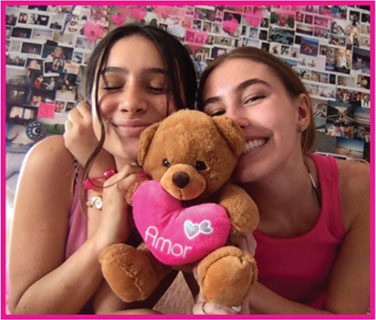 Meet the Sellers
Meet the Sellers
Sophia Webster, 17, (left) and Annie Gabler, 18, (right) are seniors at Laguna Blanca. They are both fashion enthusiasts and have started Communal Closet as a way to use their passions to better their community. They hope to present CALM with a check with the money they raised soon.



